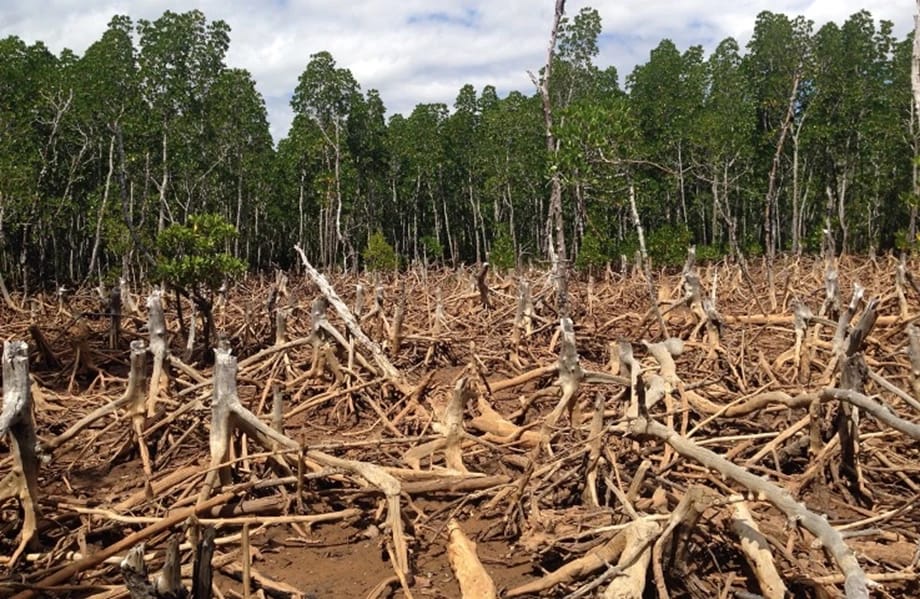Climate Change & Energy
Passage of L.I. 2462: Over 390,000 ha of forest given out in mining leases- GIF
Source: Ghenvironment.com - December 20, 2023

File Photo
The Government of Ghana has come under intense pressure following its decision to clandestinely pass a new Legislative Instrument in November last year which many believe would open the country's fragile forest for mining.
The L.I. called the Environmental Protection (Mining in Forest Reserves) Regulations, L.I. 2462, gives the President of the country the authority to approve mining activities in Ghana's protected forest reserves.
At the 26th Annual General Meeting (AGM) of the Ghana Institute of Foresters (GIF), the Institute noted that, in just one year of the passage of L.I. 2462, over 390,000 ha
constituting 22 % of forest area has been given out in mining leases including three Globally Significant Biodiversity Areas (GSBAs).
It said, there are currently 14 new applications for mining leases which are under various stages of consideration for permits to mine in our Forest Reserves. This is a worrying situation for the Institute.
"So the consensus was that the L.I. 2462 is a threat to sustainable forest management in Ghana and that if the L.I. remains in its current state, no forests will be left for the nation very soon. We risk losing not only the livelihoods of local communities but also
biodiversity and the ecological services that sustain life, including clean water, air, and
healthy soil", it added.
Another organisation that has recently condemned the new L.I. is Settle Ghana, an organisation dedicated to advancing the rights of indigenous people in Ghana.
According to the organisation, it has conducted a month-long survey revealing that indigenous people, particularly those residing in communities around forest reserves, vehemently oppose any form of mining within these reserves.
Settle Ghana is particularly concerned about the potential ecological consequences of this regulation, citing the recent alleged grant of a mining lease to High Street within the Kakum National Park.
Abu Karimu, the Chief Executive Officer of Settle Ghana, made this revelation in a statement dated December 19, 2023.
According to Settle Ghana, the current regulation contradicts existing legislation, such as the Environmental Protection Agency Act, which discourages mining in forest reserves.
The organisation emphasised that Ghana, as a signatory to international agreements on climate change and biodiversity, is obligated to discourage activities that endanger the environment.
The statement highlights Ghana's diminishing forest reserves, citing examples of eight forest reserves already leased to various mining companies, including Draw Forest Reserve, Neung South Forest Reserve, and Mamiri Forest Reserve.
Settle Ghana expressed concern about the impact of illegal mining, logging, bushfires, and commercial charcoal burning on Ghana's environment.
Settle Ghana also addressed the controversial lithium lease agreement signed between the Government of Ghana and Australian firm Lithium Atlantic.
The organisation joins indigenous people and concerned Ghanaians in opposing the agreement, arguing that the current terms are detrimental to the indigenous people, offering Ghana only a 13% stake while the foreign company retains the majority.
Settle Ghana urged ''the government to consider Free, Prior, and Informed Consent (FPIC) as a national law, allowing Indigenous People the option to consent or withhold approval for the exploitation of natural resources''.
The organisation contends that such a law would enhance the participation of Indigenous People in decision-making processes related to resource exploitation.
The Settle Ghana release concluded with strong opposition to the implementation of L.I. 2462 and mining in forest reserves.
Settle Ghana emphasised Ghana's obligation to preserve its forest cover, citing alarming statistics indicating a significant decrease in tree cover and humid primary forest reserves over the past two decades.
The organisation called on the government, Civil Society Organisations, traditional authorities, and all stakeholders in the environmental space to collaborate in preserving Ghana's natural resources and finding a balance between development and conservation.
Another Institution that has also shown its unhappiness with the new L.I. is the Ghana Academy of Arts and Sciences.
It said in a press statement last week that, the major drawback to the legal framework is the passage of the Environmental Protection (Mining in Forest Reserves) Regulations, 2022 (L.I. 2462), which allows unfettered access to the forest reserves
of the country through the granting of Forest Entry Permits for mining by the Forestry Commission.
It said, the L.I. 2462 was intended to bridge the gaps in environmental regulations in the mining sector and replace the inadequate and unclear guidelines of the Environmental Protection Agency (EPA) that had governed mining in forest reserves
since 2000.
"We consider this legislation to be inimical to good mining practices and environmental sustainability because it has the potential to attract more unregulated mining investments into the forest reserves", the statement said.
Awula Serwah
December 21, 2023
Winifred Amma Baffour
December 21, 2023
Winifred Amma Baffour
December 21, 2023
Andrew Asare-Nyako
December 22, 2023
Citizen not Spectator
November 22, 2024
 File Photo
File Photo



Awula Serwah
December 21, 2023